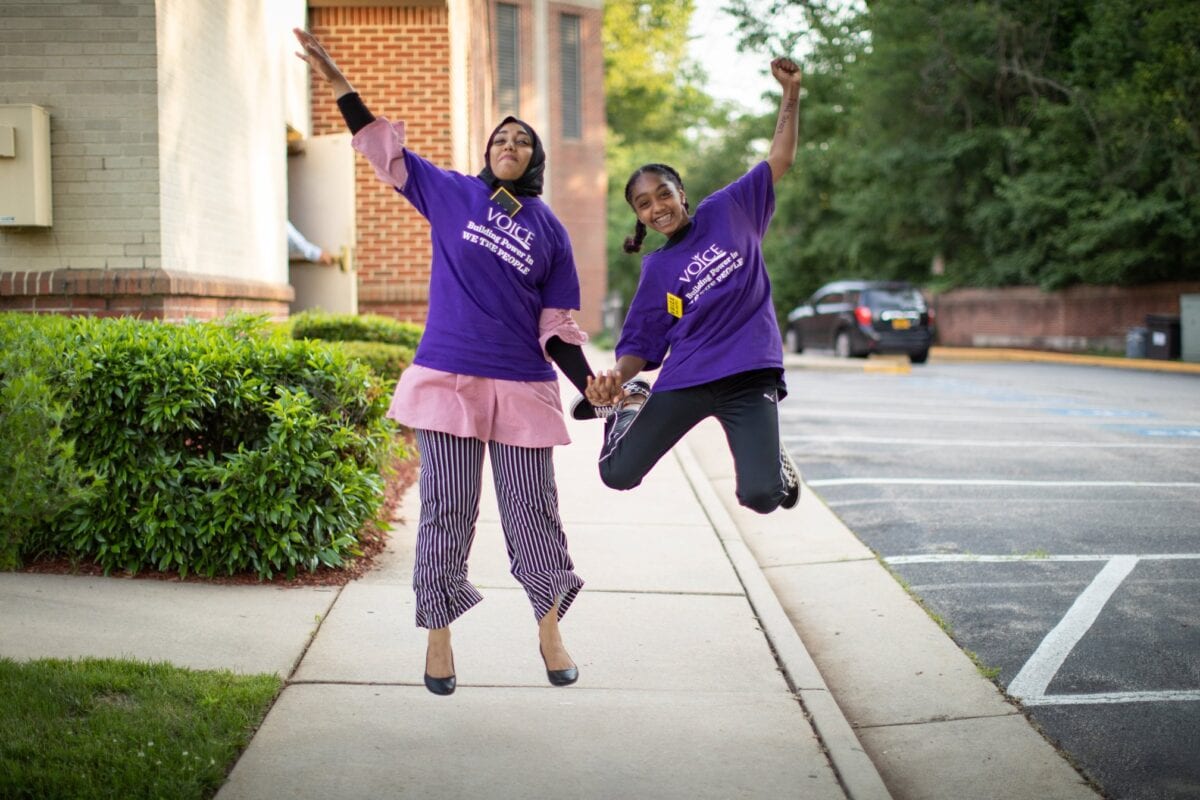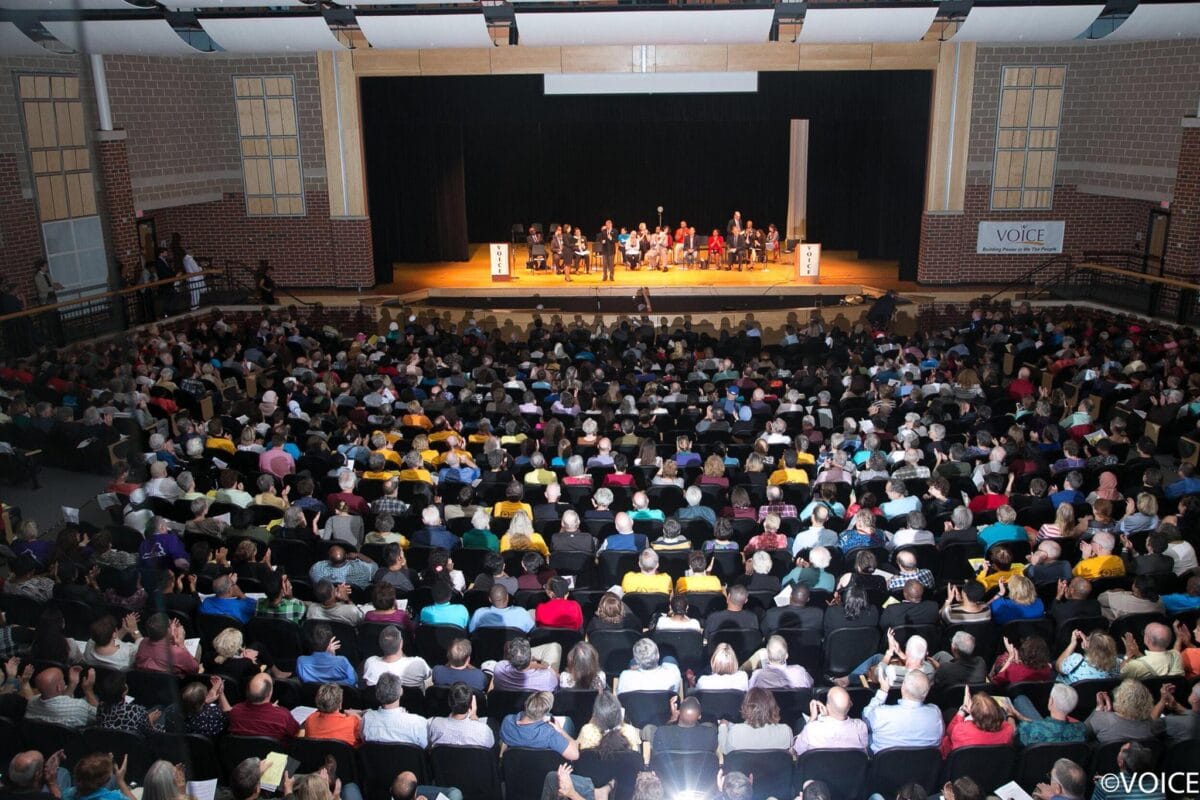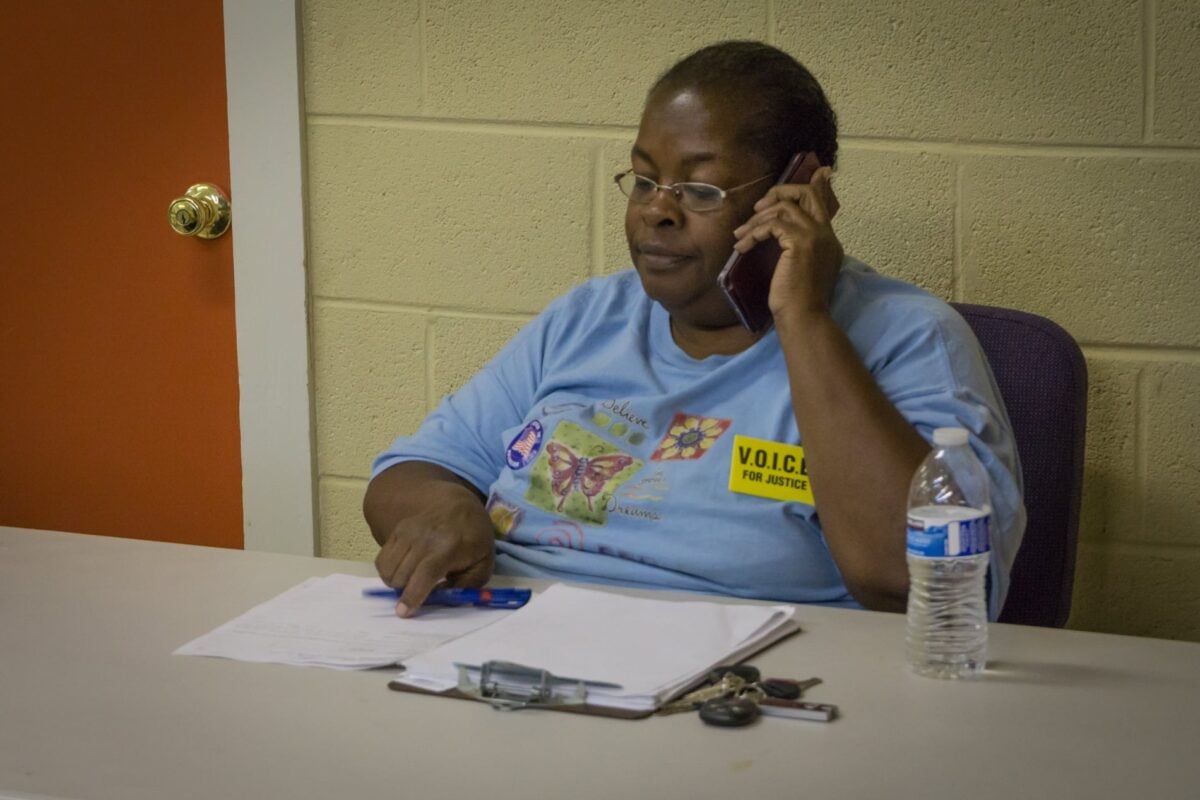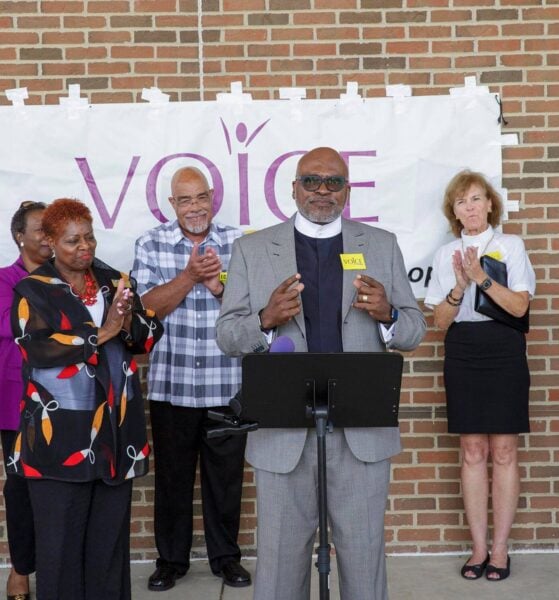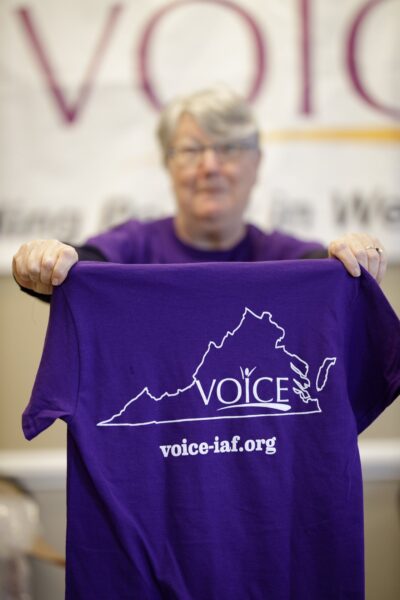Stories of the Spirit- VOICE

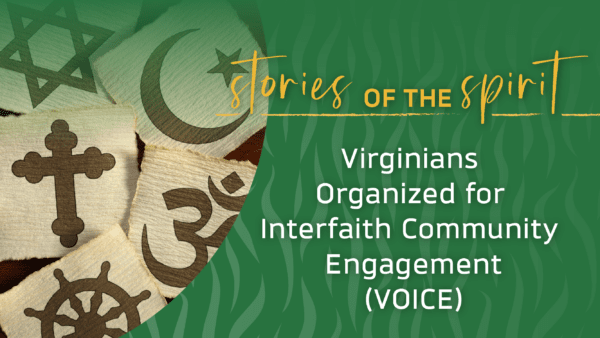
So Christ himself gave the apostles, the prophets, the evangelists, the pastors and teachers, to equip his people for works of service, so that the body of Christ may be built up until we all reach unity in the faith and in the knowledge of the Son of God and become mature, attaining to the whole measure of the fullness of Christ.
Ephesians 4:11-13, NIV
The verse above perfectly reflects the work of Virginians Organized for Interfaith Community Engagement (VOICE). They equip community members with the training and tools necessary to make change.
VOICE is a network of over 45 community institutions, both religious and secular, throughout Northern Virginia. This non-partisan group was founded in 2008 by local clergy members who were frustrated by the status quo and wanted to make meaningful change. The Metro D.C. Synod recently met with James Pearlstein, Co-Lead Organizer, to learn more.
James emphasized that VOICE is about building relationships; before they do anything, they learn “what is first and foremost on people’s hearts, spirits, and minds that they want to change.” By building relationships with community members, this helps VOICE make sure that they don’t create a divide between “people coming to serve” and “people being served.” The process is meant to be a collective walk; we are all in this together, so to speak. A large part of the volunteer led training is about how to build these relationships—what questions to ask, the importance of 1-on-1 conversations—but also the logistics of how to work within the rules of local organizations.
You may be familiar with some of the work VOICE has done. They helped constituents win back almost $300 million from banks that were engaging in predatory subprime lending and helped put in place one of the strongest eviction moratoriums during the COVID-19 pandemic. Another change they helped institute was getting rid of the suspended drivers license penalty for unpaid court fees in Virginia. Now, over 625,000 Virginians are eligible to get their licenses back, removing a huge impediment to getting back to work and back on track.
Some of their largest goals for the next few years, although they’ve had them since their beginning, are affordable housing and support for mental health.
VOICE has helped secure nearly $30 million in state funding to create Crisis Receiving Centers (CRCs). Their backing and support helped push through the approval of a new crisis center in Prince William County.
“We are stronger when we are broader and more diverse.” This goes for VOICE’s membership base, but also for all of us in our personal lives. The more people from different backgrounds, belief systems, and faiths that you are in relationship with, the better we can live into our Christian call to love all of God’s people. VOICE believes that maintaining these diverse relationships on an ongoing basis is the key to overcoming the polarization in our communities and building a strong foundation for change.
We asked James, “What does being a member of VOICE look like, and why should congregations get involved if they already have outreach programs?” He gave two reasons: First, outreach programs and VOICE are working towards the same goal: having healthier and stronger communities. While outreach programs are often helping solve the outcome of issues (ie. serving meals to homeless shelters), VOICE is working on the cause of the issues (ie. ensuring access to affordable housing). But secondly, and most importantly, both of these ways of working and serving are needed. As James said, “Approaching these things together is more effective than doing them alone. The scale of the challenges necessitates that; one congregation or one denomination cannot address affordable housing alone.” While we are working to soften the edges of these problems, how can we go deeper and solve them at their core?
If you are interested in getting involved in VOICE, you can:
- Donate: While VOICE does not have individual memberships, they do take individual donations. Funds go towards training thousands of leaders to act and win on the issues that are most important to them in their communities.
- Become a Member: if reading this article resonated with you, and your congregation resides in Northern Virginia, talk to your church leadership about becoming a VOICE member. Or, reach out to a VOICE organizer for help getting started!
And even if you don’t get involved with VOICE, think about building relationships in your community beyond your church walls. Our call as Jesus’ disciples demands it. We are all stronger together.
Learn more about VOICE on their website, www.voice-iaf.org.
Thank you to James Pearlstein for taking the time to meet with the Metro D.C. Synod Communications team for this edition of Stories of the Spirit.




